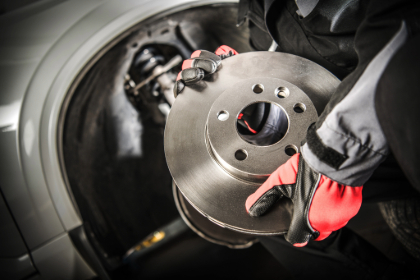INDEPENDENT DEALER
Apopka, FL | (321) 230-6958
OUR BLOG
Stay safe on the road! Learn how to extend brake life with easy maintenance tips and expert insights from Ken Reaser Enterprises in Apopka, FL.

Your car’s brakes are undoubtedly its ultimate safety feature. Keeping them in good shape protects you and your passengers while extending your vehicle’s life. Moreover, the heat and humidity in Florida can make it difficult for your car to stop. These conditions speed up wear and tear and can even degrade brake fluid faster. That’s why regular maintenance is a must.
Considering the above, this post will share simple tips to extend brake life. These will help you avoid expensive repairs, make your brakes last longer, and keep you safe on the road. Ready to get started? Let’s go!
Give your engine the best with AMSOIL’s premium products. Reach out to Ken Reaser Enterprises in Apopka, FL, at (321) 230-6958 to upgrade your car’s performance, or visit AMSOIL’s online store for easy restocking. Better protection and longer engine life—get your car care supplies today!
1. Inspect Your Brakes Regularly
Routine brake inspections are your first line of defense against potential issues. Aim to check your brakes at least every six months. Look out for warning signs like squeaking, grinding noises, vibrations, or a spongy brake pedal. These could indicate worn pads, rotor problems, or fluid issues.
Professional inspections are especially valuable. A trained mechanic can spot early signs of trouble, saving you from costly repairs down the road. Don’t wait for a problem to escalate—stay proactive!
2. Check and Replace Brake Pads as Needed
Brake pads do the heavy lifting in your braking system, but they don’t last forever—they wear down with use. If you hear a high-pitched squeal or notice reduced stopping power, it’s time to check your pads. When the pad thickness drops below ¼ inch, replacement is necessary.
In Florida’s demanding climate, opt for high-quality brake pads designed to withstand heat and humidity. Investing in durable pads now can prevent frequent replacements later.
3. Don’t Ignore Your Brake Rotors
Your brake rotors work hand-in-hand with the pads to slow your car. Over time, rotors can develop deep grooves, warping, or uneven surfaces. If you feel a pulsating brake pedal or hear unusual noises, your rotors may need attention.
Resurfacing or replacing rotors when needed ensures smooth braking and prevents further damage to your system. Don’t overlook this critical component!
4. Keep an Eye on Brake Fluid
Brake fluid is the lifeblood of your hydraulic braking system. But did you know it can absorb moisture over time? This can lower its boiling point, reduce braking power, and even cause corrosion inside the system.
To avoid these issues, check your brake fluid regularly. Look for changes like discoloration or cloudiness. Most experts recommend flushing and replacing it every two years. Fresh fluid means better braking and safer drives.
Don’t take chances with your brakes. Upgrade to AMSOIL DOT 3 and DOT 4 100% Synthetic Brake Fluid for better stopping power and long-lasting performance. Call Ken Reaser Enterprises in Apopka, FL, at (321) 230-6958 or visit AMSOIL’s website to order online!
5. Drive Smart to Reduce Brake Wear
The way you drive affects how long your brakes last. Do you hit them hard or keep your foot on them while going downhill? That can wear them out much faster!
Here’s the trick: ease off the gas early, keep a safe distance from the car ahead, and let your engine do some of the work (engine braking is your friend!). In Florida’s bumper-to-bumper traffic, these small changes can keep your brakes happy for miles.
6. Check for Brake Line Issues
Brake lines are essential for delivering hydraulic pressure to your brakes. Over time, they can develop leaks, cracks, or corrosion, especially in humid climates.
Inspect your brake lines regularly for signs of wear. If you notice any damage, replace them promptly to avoid brake failure. Your safety depends on it!
7. Ensure Proper Wheel Alignment and Tire Health
Misaligned wheels or worn tires can strain your braking system, reducing its efficiency. Signs of misalignment include uneven tire wear or your car pulling to one side when braking.
Regular tire maintenance, including rotations and alignments, complements your brake care efforts. Healthy tires and proper alignment help your brakes work as intended.
8. Get Professional Brake Service When Needed
While DIY maintenance is great, some tasks require a professional touch. Trained mechanics can spot problems you might miss. They can also handle tricky repairs. Follow your vehicle’s recommended service schedule. It’s the best way to keep your brakes working longer—and keep you safe on the road.